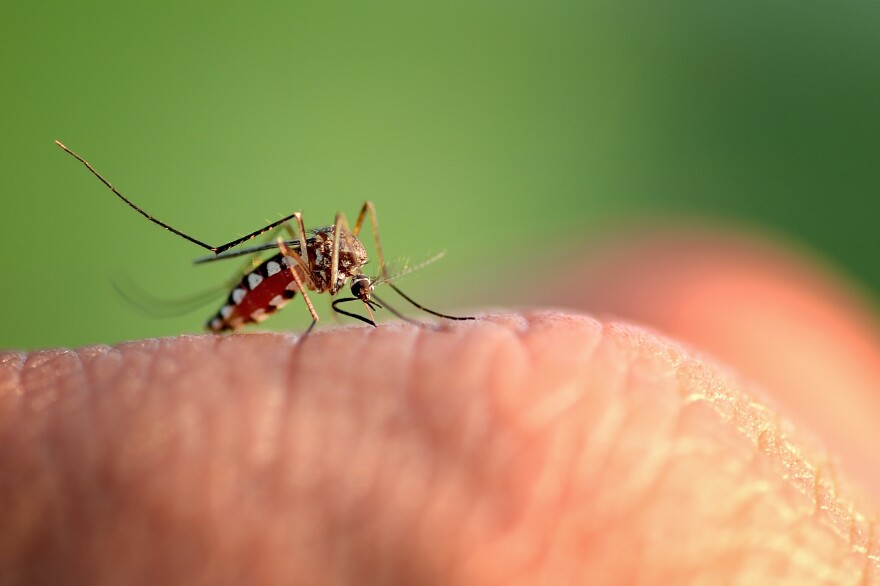The potential for human cases of mosquito-borne illnesses is increasing in Michigan, as more mosquito pools in the state are testing positive for viruses like West Nile virus and Jamestown Canyon virus.
Washtenaw County health officials confirmed a positive sample of Jamestown Canyon virus in mosquitos this week, and the state previously reported nine total positive mosquito pools from Bay, Kalamazoo, Ottawa, and Saginaw counties already this year.
Many people who contract Jamestown Canyon virus, which predominantly affects people in the Upper Midwest and northeastern U.S. and tends to peak this time of year, won't have any symptoms. But some rare cases can be severe, including inflammation of the brain or meningitis, according to the Centers for Disease Control and Prevention.
Meanwhile, Kent County found three samples of West Nile virus through mosquito surveillance, health officials there said Friday, marking the first detections in the county for the 2025 season.
West Nile virus is the leading cause of mosquito-borne disease in the U.S., and while most people with the virus don't develop symptoms, "about one in five develop mild, flu-like illness — including fever, headache, body aches, or rash," Kent County health officials said in a press release. "In rare cases, WNV can lead to serious neurological complications."
The state had previously reported West Nile virus detections in one bird from Saginaw County and five mosquito pools from Bay, Macomb, and Midland counties so far this year.
"These detections are a reminder that local mosquitoes are active and capable of spreading illness," Brendan Earl, supervising sanitarian at the Kent County Health Department, said in a statement. "By taking simple precautions like applying insect repellent and eliminating standing water around your home, residents can significantly reduce their risk while still enjoying the outdoors."
The detections are pretty on-track with what the state was experiencing this time last year, said Becky Reik, a zoonotic epidemiologist with the Michigan Department of Health and Human Services. "Right now, it looks like we're on course for a fairly normal season," she said.
That's based on surveillance data, and computer models that predict West Nile virus and Eastern Equine Encephalitis by monitoring conditions like the weather, and the number of cases in mosquitos and other animals early in the spring and summer.
"If we get more hot weather, it's going to start predicting more cases, so things could certainly change," Reik said. And every human case "represents someone who's sick, really sick, potentially, and even can die ... so even a normal year is not great. But we're not seeing really abnormally high levels of virus in any of the surveillance that we've done so far."
There have been no human cases of Jamestown Canyon virus in Michigan so far this year. Last year, seven people tested positive for JCV in the state, and 31 Michigan residents tested positive for West Nile virus.
Positive mosquito samples don't always mean the human cases will occur in those same areas, Reik said. "We don't necessarily see the positive pools in places where we then have human cases that correspond."
But cases typically start to pick up in August, said Reik, so it's a good idea to take precautions right now, even if you're not experiencing unusually high levels of mosquito activity in your area.
"Often the years that we have the worst West Nile virus outbreaks are years where people tell me they're hardly seeing any mosquitoes," she said. "So the mosquito abundance really doesn't have a lot to do with the level of mosquito-borne disease that we're seeing."
Health officials advise using a repellent with 10%-35% DEET, and avoiding outdoor activities at dawn and dusk when mosquitoes are most active. Keep screens and gutters in good condition, too, and eliminate standing water around the home by refreshing bird baths and wading pools regularly.
"Mosquito bites can give you much more serious diseases, even if you're not really that worried about just an itchy mosquito bite for yourself," Reik said.
Copyright 2025 Michigan Public


